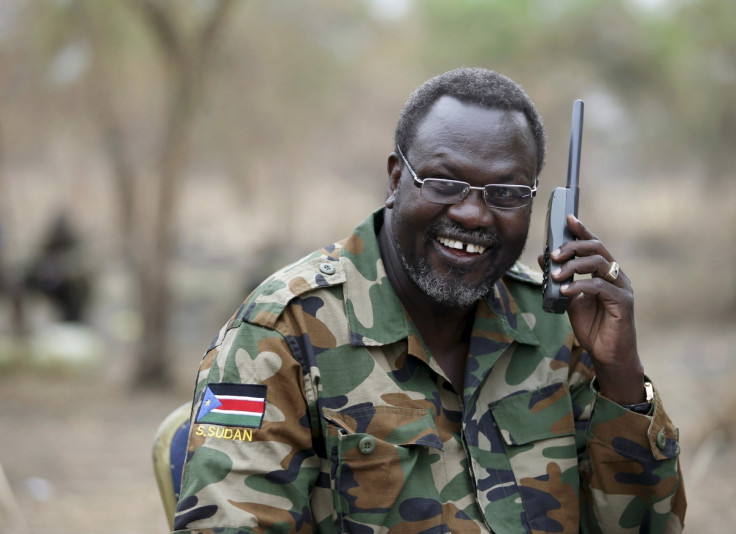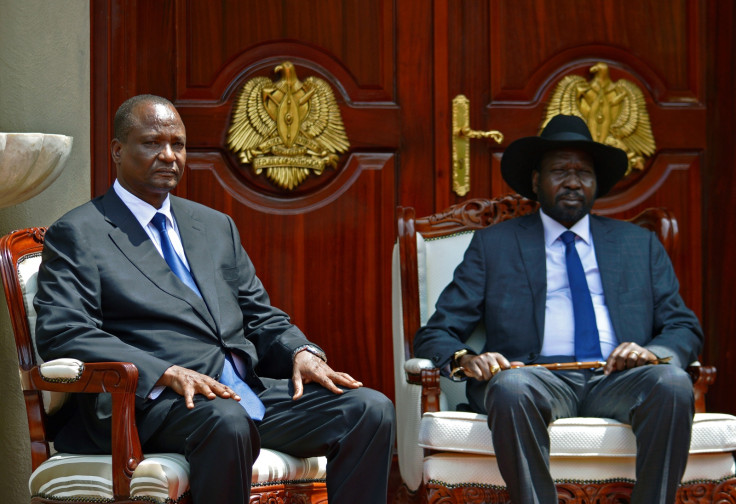South Sudan: Rebel leader Riek Machar 'successfully relocates to another country in East Africa'
Machar 'will now have unhindered access to world' after SPLA-IO replaces him with Taban Deng Gai.
South Sudan's rebel leader and former vice president has relocated to another country in East Africa, the opposition has said. Riek Machar's whereabouts had been unknown since he fled the capital Juba following deadly fighting in July.
A statement issued by the leadership of the SPLA In Opposition (SPLA-IO) said he left on Wednesday 17 August to a "safe country within the region", Reuters reported.
Spokesman James Gatdet Dak said on his Facebook page opposition fighters had "successfully relocated our leader to a neighbouring country where he will now have unhindered access to the rest of the world and the media." Dak declined to say which country Machar had gone to.
Machar originally left South Sudan when a civil war erupted in 2013. The conflict was sparked when President Salva Kiir, of the Dinka ethnic group, fired his deputy Machar, from the Nuer group, and his cabinet.
Machar's return to South Sudan and his reinstatement as vice president in April had restored hopes for the implementation of a peace process signed in August 2015. However, tensions have been running high since his return.
In July, the opposition leader went into hiding following deadly fighting that left at least 300 people dead in Juba.
South Sudan conflict explained
He accused government forces of opening fire on his troops, and said he would return to the capital once a third party force was deployed to ensure his and his officials' safety.
After fleeing Juba, Machar was replaced by Taban Deng Gai, former minister of mining and SPLM-IO chief negotiator. The move was seen by some as an obstacle to a peace deal signed in August 2015.

South Sudan urged to accept more peacekeepers
Following the start of the civil war, ethnic-related violence spread, with militia groups carrying out attacks in villages and areas known to be inhabited by either the Dinka or Nuer tribes.
More than 10,000 people have been killed amid allegations of crimes against humanity committed by both sides, including rape, torture and use of child soldiers. At least two million people have also been displaced.
Following resurgence of violence in July, the South Sudanese government has been urged to accept more peacekeepers in the country, in a plan backed by the AU. The government initially opposed the plan, with the South Sudanese envoy to the UK telling IBTimes UK in an exclusive interview the country does not want "to be meddled with by foreign troops".
Earlier in August, Kiir said he was considering the possibility of allowing a 4,000-strong UN contingent to be deployed to the country.
August 2015 peace deal: The key points
- Both parties commit to immediate cessation of violence
- Machar to be reinstated as vice president
- Foreign troops to be withdrawn
- Military personnel in Juba to be replaced by police and guards
- Creation of transitional government that will stay in power for 30 months
- Presidential elections to be held 30 days before end of transitional government mandate
- Probe into abuses committed during conflict (for the full document, click here)

© Copyright IBTimes 2025. All rights reserved.






















